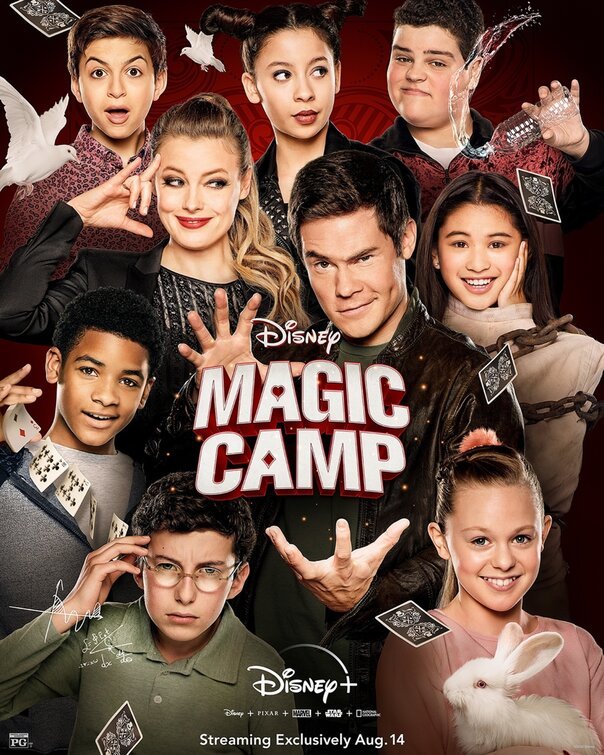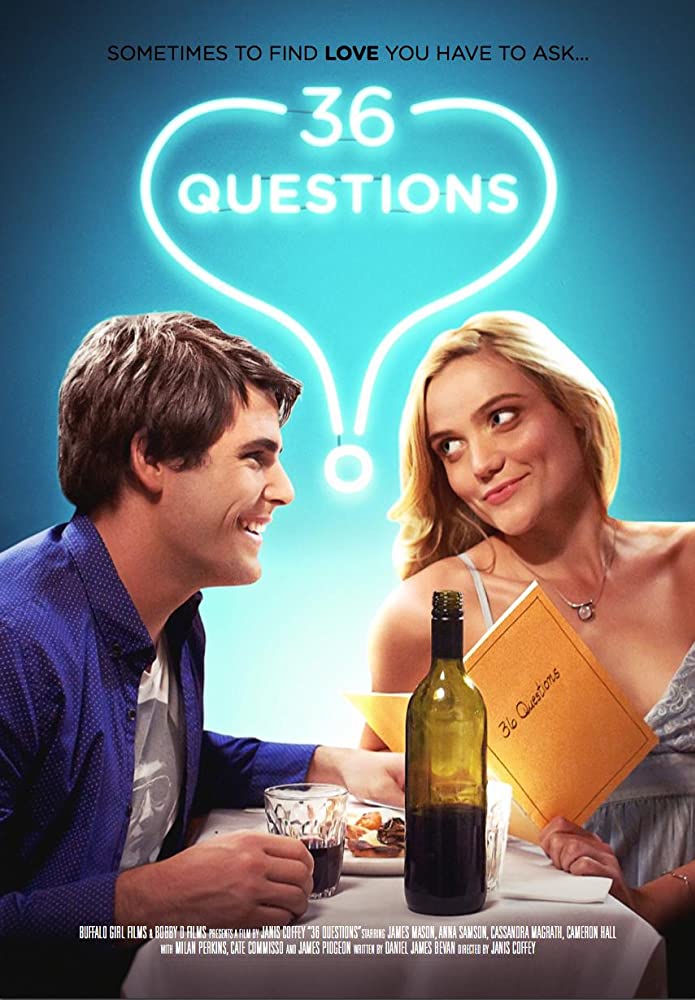“Counterfeit Love”

| None | Light | Moderate | Heavy | |
|---|---|---|---|---|
| Language | ||||
| Violence | ||||
| Sex | ||||
| Nudity |
What You Need To Know:
36 QUESTIONS has some interesting ideas about getting to know a person more deeply when dating. It also has some good acting and likable characters. However, a good chunk of the script involves answering the 36 questions, so the story moves too slowly. Also, the movie has a strong, godless Romantic worldview promoting fornication, with some strong foul language and a few lewd comments. Finally, the lead male character puts his faith in the universe rather than God. 36 QUESTIONS endorses an unacceptable, abhorrent, unbiblical view of love. There’s no discussion in 36 QUESTIONS about God as the author of love, or about relying on God or Jesus Christ.
Content:
At least 14 obscenities (mostly “f” words), no profanities and a character is partially shown on a toilet
Brief non-graphic description of domestic abuse
Dialogue includes strong motivation for a fast track date that leads to sex and crude references to self-abuse, plus a waiter tells a couple at the end of their first date that he wishes they “make long sweet passionate love tonight”
Some upper male nudity
People have wine with dinner
Character smokes, and there’s discussion of drug use, including opium and mushrooms; and,
Nothing else objectionable.
More Detail:
The movie then drifts into a repetitive animation sequence for the next 3 minutes, and finally makes it to the opening scene of the movie. Two friends James and Ryan sit in a car parked in front of a store, where they discuss the true meaning behind ALICE IN WONDERLAND. Ryan asserts that the true story is about a junkie and his chosen drug. He believes the message for children is to go down any rabbit hole in order to get what they want. This becomes his motivational speech to convince James he should go into the store and ask a woman he admires there for a date. James finally gets up enough courage and is successful in acquiring his love interest, Gabrielle’s, phone number.
A back-and-forth text exchange between James and Gabrielle ensues for several days. James needs the constant input of his friend Ryan, while Gabrielle needs the ever-present opinion of her friend, Lydia. The game of cat and mouse ends when Gabrielle finally concedes to go out to dinner with James after she receives a lengthy and clever text from him.
Some of the scenes are abruptly interrupted with more psychological commentary from Dr. Aron about what’s happening. Dr. Aron lists what people are actually looking for in romance and how to get it. Dr. Aron’s summary on love is that people look for romance in order to find passionate love out of a desire to unite or connect deeply, usually in a sexual way.
James and Gabrielle finally meet at an Italian restaurant. They are attended by a mysterious waiter/love guru, Julian. With humor and awkwardness, Julian settles the nerves of the young couple. Instead of giving them a menu, he gives them 36 Questions to help them get to know each other. The two have a great time as they answer the questions. Chemistry and attraction grow to the level where they intermittently text their friends that they may end the date with a “hookup.”
The dinner concludes with a walk in the park. They stroll along as they continue to reveal personal information about each other. Everything is coming up roses until James makes a comment that may end this budding romance.
36 QUESTIONS has some very interesting ideas about the importance of getting to know a person intimately when dating. The movie has some good acting and likable characters. However, due to the nature of dozens of questions in one dinner setting, the story is very slow moving. Also, the movie’s concept of love is very Romantic in a philosophical sense. It assumes that men and women are basically good and are just looking for an emotional connection with one another through romance. The movie also promotes a type of hookup mentality regarding such emotional connections and never discusses the idea of holy matrimony, or marriage between one man and one woman.
Thus, there is no discussion in 36 QUESTIONS about God as the author, as well as the source and summit of love, or about relying on God or Jesus Christ. In fact, James actually puts his faith in the “universe” to “throw him a bone” or help him.
The biblical idea of love, however, is best described in John 15:13, where Jesus says, “There is no greater love than to lay down one’s life for one’s friends.” Thus, from a Christian, biblical perspective, love is about giving, not getting, and the universe is just a system of entities and things created by God for us to enjoy, not to give us direction in our lives, other than the biblical fact cited in Romans 1:20 that “God’s invisible qualities – his eternal power and divine nature – have been clearly seen, being understood from what has been made, so that people are without excuse.”
36 QUESTIONS also has some strong obscenities and lewd, immoral dialogue. However, it’s the movie’s Non-Christian, false worldview that makes it abhorrent.


 - Content:
- Content: 

